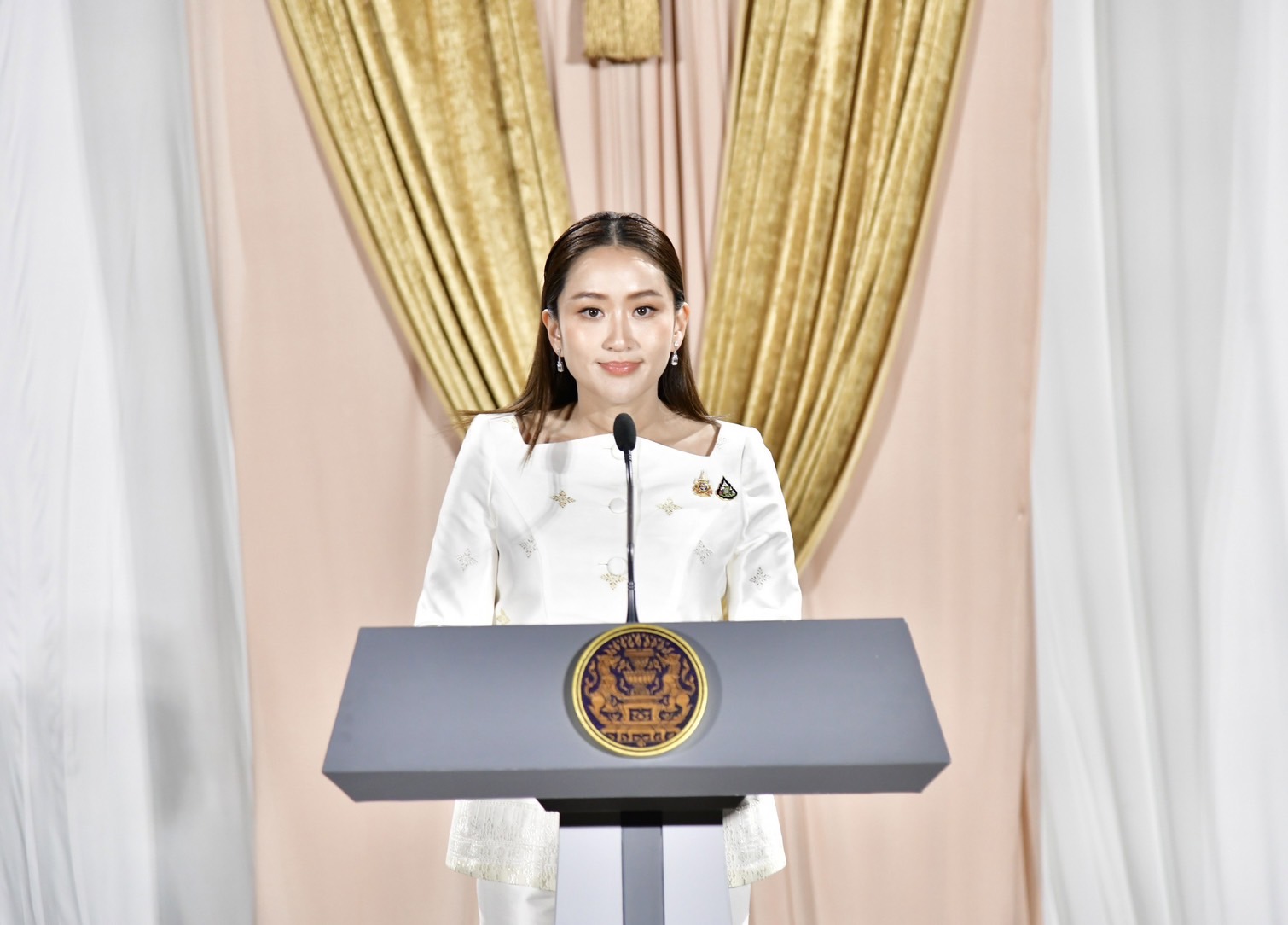The unwieldy wheel of Thai politics has spun another circle that is more profoundly consequential and portentous than in the past. On the face of it, Thaksin Shinawatra still dominates Thailand’s political landscape, this time through his daughter Paetongtarn Shinawatra, the newly chosen prime minister. In turn, Paetongtarn’s rise to the premiership closes a two-decade loop of periodic elections, street protests, two military coups, two constitutions and multiple judicial bans on political parties and elected politicians.
Now that the Shinawatra clan has been coopted by its former establishment adversaries, at issue in the medium term will be the popular movement for Thailand’s structural reforms and institutional modernization as represented by the Prachachon (People’s) Party, the successor of the Move Forward Party dissolved earlier this month and Future Forward Party disbanded in February 2020. The conservative establishment’s tactics and maneuvers to stymie and suppress Prachachon Party and its progressive forces demanding change and reform will likely be the overarching theme of Thai politics ahead of and immediately after the next election due in mid-2027.
A flurry of recent power plays deserves elaboration. A post-election reset of sorts delineated in our previous updates from August 14 and July 23 is still at work. After Move Forward was duly dissolved August 7 for its pledge to reform the draconian royal defamation law, Prime Minister Srettha Thavisin was unceremoniously dumped a week later by the same Constitutional Court. Between the two remaining candidates for premiership, Thaksin’s Pheu Thai Party unexpectedly went with 37-year-old Paetongtarn over Chaikasem Nitisiri, 75, a former justice minister and chief public prosecutor.
The official and understandable rationale is that Pheu Thai’s rank-and-file preferred the younger Paetongtarn as a new-generation face with the necessary freshness, energy, drive and cosmopolitanism to take the party forward in its attempt to regain electoral ground from the Prachachon Party heading into the next poll. Putting in Paetongtarn also bit the bullet because she was the anointed leader of the party her father founded. But the power play that reportedly went down may suggest there is more than meets the eye.
Just a few hours after Srettha’s removal from office August 14, Chaikasem had received the endorsement of Pheu Thai’s core leaders, which was reported in the local media. Paetongtarn, with two young children, was still being guarded and groomed by her family (especially her mother) for a later premiership opportunity. But by the morning of August 15, both Pheu Thai and a key coalition partner started to make noises about Paetongtarn being the right and chosen one. It appears she had establishment backing for the top job.
The new prime minister enters office as a newcomer and novice, but she will not be naive. Paetongtarn came of age when Thaksin was at the height of his power in the early 2000s. When a military coup deposed him in September 2006, Paetongtarn as a political science undergraduate at Chulalongkorn University came to campus accompanied by bodyguards. Such was the hatred against her father at the time. She also would have been familiar with Thaksin’s political associates, patronage networks and business partners as the youngest daughter who frequently tagged along with him.
The irony for her now is that her father has struck an alliance with the pro-military and establishment forces who booted him out — as well as her aunt Yingluck Shinawatra — in the 2006 and 2014 military takeovers. Although Paetongtarn will be prime minister, she will rely closely on her father to be the manager of the coalition government and overall power broker and troubleshooter. Thaksin will hover over the new government as shadow prime minster while Paetongtarn fronts it, similar to the way “Thaksin thinks, Yingluck acts” back in 2011-14, except this time it is his daughter rather than sister as premier.
Regardless of her father’s helping hand, Paetongtarn will have her work cut out. The economy is in the doldrums in view of a lower growth trajectory and loss of competitiveness. Busy with recent political machinations, Paetongtarn and Thaksin have made little mention of policy. Unlike two decades ago when Thaksin was on top of the policymaking game, growth drivers and regional dynamics, he appears out of date, while Paetongtarn conspicuously lacks policy experience. Their Pheu Thai party urgently needs to show policy deliverables to placate popular disenchantments, but it will be hard pressed as an establishment ally to come up with progressive policies needed to win back voters, such as tackling monopolies, decentralizing power, reforming the military and making the monarchy more transparent and accountable. Joining forces with the conservative establishment also may further alienate Pheu Thai from its support base. If it faces a bigger poll setback, it is conceivable that Pheu Thai may end up as a full-fledged pro-establishment party by the next election going against a broadened Prachachon Party.
As the Paetongtarn government comes into place, it is likely that the division of cabinet portfolios along party quotas will mostly continue from the Srettha period. Coalition partners, such as the Bhumjaithai, Palang Pracharat and United Thai Nation, parties may bargain for more positions and lucrative posts, but such additions will likely be minimal because the Paetongtarn premiership is seen to have establishment blessing and attendant implicit power. The signature policies from the THB 10,000 ($300) digital wallet scheme to boost consumption and a “land bridge” to link the Gulf of Thailand to the Andaman Sea to “soft power” projects and bilateral free trade agreements that made little headway under Srettha will be a big early test for Paetongtarn and Thaksin.
If the THB 10,000 digital wallet is dropped or diluted, it will show a lack of policymaking mettle. The extent to which other policy programs go anywhere in the near term also will foretell the government’s policy prospects. The bottom line for the Thaksin-influenced government under Prime Minister Paetongtarn will likely revolve around whether it can come up with policy ideas that can be formulated and implemented to move Thailand up global value chains and lift the growth trajectory and whether it will be given space to work and get things done. If court petitions against Paetongtarn or her father emerge — Thaksin is already under a royal defamation charge — the new government may become ineffectual and off balance like Srettha’s.
Having reset the political scene, will the royalist establishment allow Thailand to move ahead, even incrementally, under the new Paetongtarn government? Or will it prefer to keep Pheu Thai weak, Thaksin and Paetongtarn precarious, and the government off-balance?
In any event, the business community can take measured confidence that the new administration will be desperate for quick results and deliverables. It is an opportune time for discerning businesses to engage with the new Thai government to help shore up growth and potentially show beneficial ways forward for the economy.
Unlike the past, Thailand is in uncharted waters as the royalist establishment is increasingly exposed as an open political actor. Thaksin ultimately proved to be part of the establishment. The threat he posed by repeatedly winning polls so spectacularly was unwitting and unintended. The mass movement behind Prachachon Party for fundamental structural reforms is what makes Thailand’s new political chapter very different than previously seen.
We will continue to keep you updated on developments in Thailand as they occur. If you have comments or questions, please contact BGA Senior Adviser Thitinan Pongsudhirak at thitinan@bowergroupasia.com and BGA Thailand Managing Director Teresa “Art” Siripant at tsiripant@bowergroupasia.com.
Best regards,
BGA Thailand Team

Senior Advisor
Thitinan is a renowned scholar, journalist and expert in international relations and domestic politics across Asia. He has spent more than three decades analyzing and advising on Thailand and the region’s political economy, geopolitics and policy. He helps BGA and clients understand in-depth the global, regional and domestic issues that affect business. Thitinan is a professor of international relations and international political economy at Bangkok-based Chulalongkorn University’s Faculty of Political Science and a senior fellow at its Institute of Security and International Studies. He has lectured widely at local and international universities, military colleges and international organizations on political and ...
Read More






















